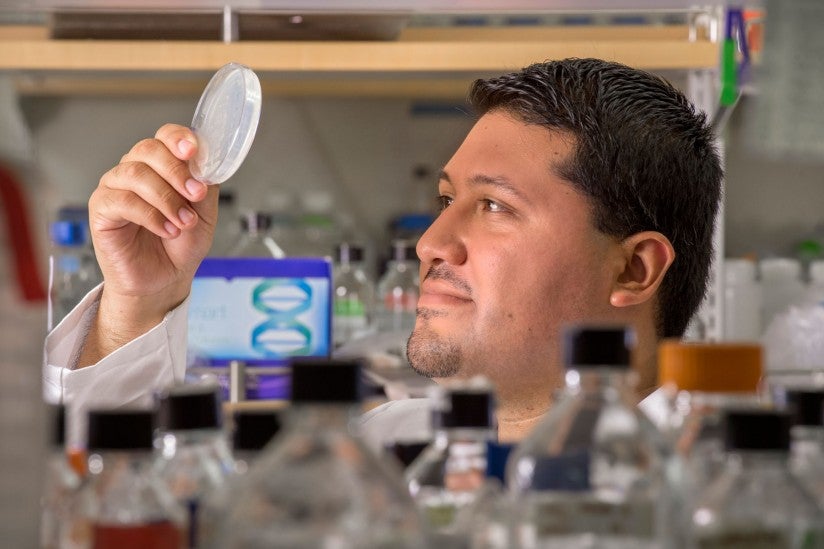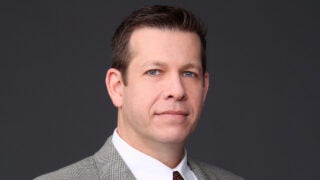USC scientists train the next generation of researchers
Training grants of all types allow students to conduct research that could ultimately contribute to key discoveries and new thinking
Spend enough time with people and they start to feel like your family. Ask anyone who has worked in a research lab. And for faculty researchers and the graduate students they mentor, the relationships can grow quite close.
“We joke that they are our ‘scientific children,’” said Susan Forsburg, professor of biology at the USC Dornsife College of Letters, Arts and Sciences, about her mentees. “If we’ve done a good job, then our students leave our laboratory well-trained and able to ask the right questions that can lead them to important discoveries.”
Academic scientists leave a bigger legacy than performing experiments and writing papers: They teach and foster the next generation of researchers. And those scientists turn to a much-needed source for help in supporting these junior investigators: the training grant.
Federal, local and nonprofit agencies provide funding to USC and other major research universities through training grants for graduate-level and postdoctoral students to get their start in important research. The National Institutes of Health, a major administrator of training grants, offers funding for work in areas from diabetes to dentistry.
Training grant funds provide students with a stipend to help cover living expenses, tuition and medical insurance.
“Successfully securing training grants like these is a mark of quality for an institution’s research,” said Randolph Hall, USC vice president of research. “These funds enable our faculty, staff, students and trainees to be creative and innovative in their field, and ultimately to contribute to critical discoveries and new thinking.”
Budding chemists

Forsburg is one of the most recent recipients at USC. The National Institute of General Medical Sciences awarded her what’s known as a Chemistry and Biology Interface T32 grant. Thanks to a joint effort between USC’s biological sciences and chemistry faculty and staff, the grant will enable graduate and doctoral students in molecular biology to train in chemistry, while budding chemists learn methods in molecular biology. These grants often expose students to different but related fields so they can come up with creative solutions to problems and gain valuable skills.
But that’s just one of USC’s training grants. One of its oldest — a grant that supports a study of aging and health — goes back to 1977. This social gerontology training grant encourages doctoral and postdoctoral students to view aging through the lenses of gerontology, psychology, biology and medicine, as well as examining issues such as how health and lifestyle affect mental sharpness in senior citizens.
The training grants gather faculty from different disciplines to become mentors to students, according to the grant’s principal investigator, Eileen Crimmins, the AARP Professor of Gerontology at the USC Leonard Davis School of Gerontology and recent electee to the National Academy of Science. “I think the real value for the students is how the grant has built a multidisciplinary community of people doing research on these issues.”
Scientific study
Students participate in this community and contribute to the team as full-fledged researchers, not just as assistants. They learn the elements of scientific study firsthand.
USC neurobiologist Sarah Bottjer and stem cell researcher Neil Segil administer a training grant in hearing and communication neuroscience.
The funds support stipends for four graduate students and two postdoctoral scholars, in addition to “value-added” training activities such as bringing in distinguished guest lecturers in cell biology, cognitive neuroscience and linguistics. These speakers share knowledge on topics from how hair cells grow in the cochlea to how speech intonations affect development of Tourette syndrome. Other activities include an annual retreat, writing workshops and an annual symposium to expose trainees to clinical aspects of hearing and vocal communication.
Bottjer and Segil hope to spark innovation while bridging basic science research with its use in treating patients. The collaborative approach has benefited students and faculty alike, according to Bottjer. The program offers lots of hands-on learning opportunities for students, she said, “but it has also greatly expanded my own horizons in thinking about hearing.”
Biologist Kelvin Davies echoed Bottjer, noting that training grants expand the frontiers of faculty members — not just those of students. His area of study — aging — poses questions and demands solutions that cross disciplines. Davies, holder of the James E. Birren Chair in Gerontology at USC Davis, is principal investigator on a training grant built around the biology of aging, or geroscience. The NIH grant, which was recently renewed, brings together biochemists, molecular biologists, molecular geneticists, physiologists, cell biologists, pharmacists and physician-scientists.
“When our first biology of aging training grant was conceived 30 years ago, there was little recognition of the integrative geroscience represented in this program,” said Davies, who is also dean of faculty and dean of research at the school. “The concept of training in biology of aging was even fanciful to most of our peers then.”
Interdisciplinary training grants also build a bridge between basic scientific research and the patients it may ultimately benefit. Doctoral candidate Elisabeth Rutledge has a biology background, but credits the NIH T32 training grant she received as a student in Andrew McMahon’s stem cell lab with encouraging her to think about her kidney development research from a broader perspective.
“The training grant exposed me to the clinical world and patient treatment. It differs a lot from how researchers think,” Rutledge said. As part of the training grant, she learned how medical students are trained to examine and find kidney problems, and what happens to the human body when the kidney malfunctions. One of the Keck Medicine of USC physicians even took her on hospital rounds to see kidney patients.
“It was really amazing to have that opportunity,” she said, “and that came to me only through this training grant.”



